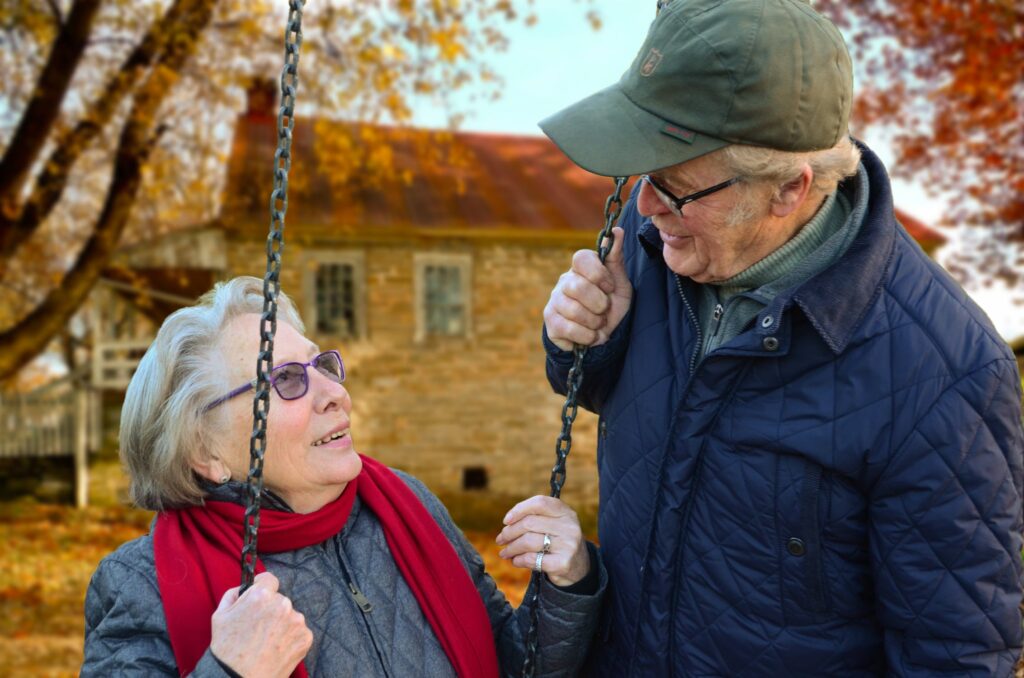One of the most important aspects of planning your retirement is deciding where you want to live once you’ve reached your golden years. The earlier you make that choice, the quicker you’ll be able to enjoy this chapter of your life to its full potential.
Lately, many retirees have been choosing to stay in retirement communities due to the benefits this environment provides. However, like everything else, it has its disadvantages too.
Here, we’ll explore both pros and cons of living in a retirement community to help you decide whether it’s something that suits your lifestyle or not.
So, without any further ado, let’s get right to the bottom of it!
The pros
1. Companionship

If you’re someone who loves meeting new people and keeps in touch with their neighbors, a retirement village might be the perfect choice for you! This environment makes socializing extremely easy, as it maintains a close-knit community that will prevent you from ever feeling isolated or lonely. You’ll share many different amenities with other residents of the village, which will allow you to create lasting friendships even in your golden years!
Seniors can often feel alienated and isolated from their communities, especially if they develop certain health issues that prevent them from leading a social lifestyle. Retirement villages allow them to meet people who’re in similar situations, creating a comfortable atmosphere in which they can enjoy each other’s company with ease.
2. Home care
You’ve worked your entire life – it’s your time to get some well-deserved rest. You’ve earned it! You shouldn’t be worrying about chores and housework, which is exactly why living in a retirement community is such a good choice to make. The home care support is usually provided, and the village units are often incredibly low-maintenance as it is!
3. Safety

Retirement communities are one of the safest places you can live in. They’re strictly guarded, which means you and your assets will be well-protected at all times. Besides that, these are built with seniors’ needs in mind, so you won’t have to worry about climbing stairs or having trouble accessing medical care and attention when you need it.
4. Convenience
As we’ve already mentioned before, these communities are all about fulfilling your needs as an elderly person. Everything you need will be easily accessible to you, including public transport, shopping centers, and healthcare facilities. As noted at Sienna Living, retirement communities give their residents a sense of belonging by providing them with the support they need to enjoy their lifestyle to the fullest – something every retiree deserves to have.
5. Activities

Retirement communities oftentimes offer a plethora of interesting activities to their residents. Just because you’ve reached the age of retirement doesn’t mean you’d like to turn your life into a routine – these communities truly understand that!
The cons
6. Not everyone can afford it

While living in a retirement community is not as expensive as you may think, it’s still not something everyone can afford. You’ll need to pay monthly fees for the facilities you’ll be using, and home care usually costs extra as well. Make sure you do your research to check whether it’s something you can handle financially before you decide it’s what you want to do.
7. It may not be close to your family
Nobody wants to be far from their loved ones, especially if they have children or grandkids. If there’s not a retirement community somewhere close to your family, you’re probably not going to consider it as an option at all. This is perfectly reasonable, and it’s one of the most common reasons why people decide against living in a retirement village when they retire.
We advise you to research all retirement centers in your area to see whether there’s one close to your loved ones or not. You’re the only person who can decide whether it’s an acceptable option for you or not – always keep that in mind.
8. You may miss the diversity

Some people are used to living around people of all age groups, which is why they may be hesitant to move to a place where there are only seniors around. Giving up the generational diversity you’re so used to can be difficult, especially for younger retirees.
If you feel like it’s not an environment you’d particularly enjoy, continuing to live independently is perfectly okay. As long as you’re able to take care of yourself, you shouldn’t force yourself to live somewhere you’re not comfortable.
9. No homeownership
Retirement village residents only get occupancy rights to their units – they don’t actually own their homes. This may leave them feeling like they’ve lost their independence in certain situations.
For example, there’s no guarantee you’ll be able to bring your beloved pets with you to your new home. As you can probably guess, this can be a complete dealbreaker for some – which is perfectly understandable in many different ways.
10. It simply doesn’t feel „right“

Many seniors feel like living in a retirement community is simply not for them, which is perfectly valid. No matter if it’s the downsizing of their living arrangements, not having the ownership of their home, or feeling like they’d lack independence, many people are uncomfortable with the idea of moving to a retirement village.
At the end of the day, the exact reason why you don’t want to move into a retirement community doesn’t really matter – what matters is that you’re comfortable and happy with your living situation.
The bottom line
Retirement communities provide many unique benefits to their residents. However, in some cases, these are not enough.
Whether or not the advantages of living in a retirement village outweigh the disadvantages of these living arrangements is completely up to you. It all boils down to your specific circumstances, preferences and needs, so don’t hesitate to do your research. It’s one of the most important decisions you’ll make for your future – choose wisely.
All in all, we hope our article helped you understand the topic in question a bit better and we wish you the best of luck in all of your future endeavors.
 Imagup General Magazine 2024
Imagup General Magazine 2024



